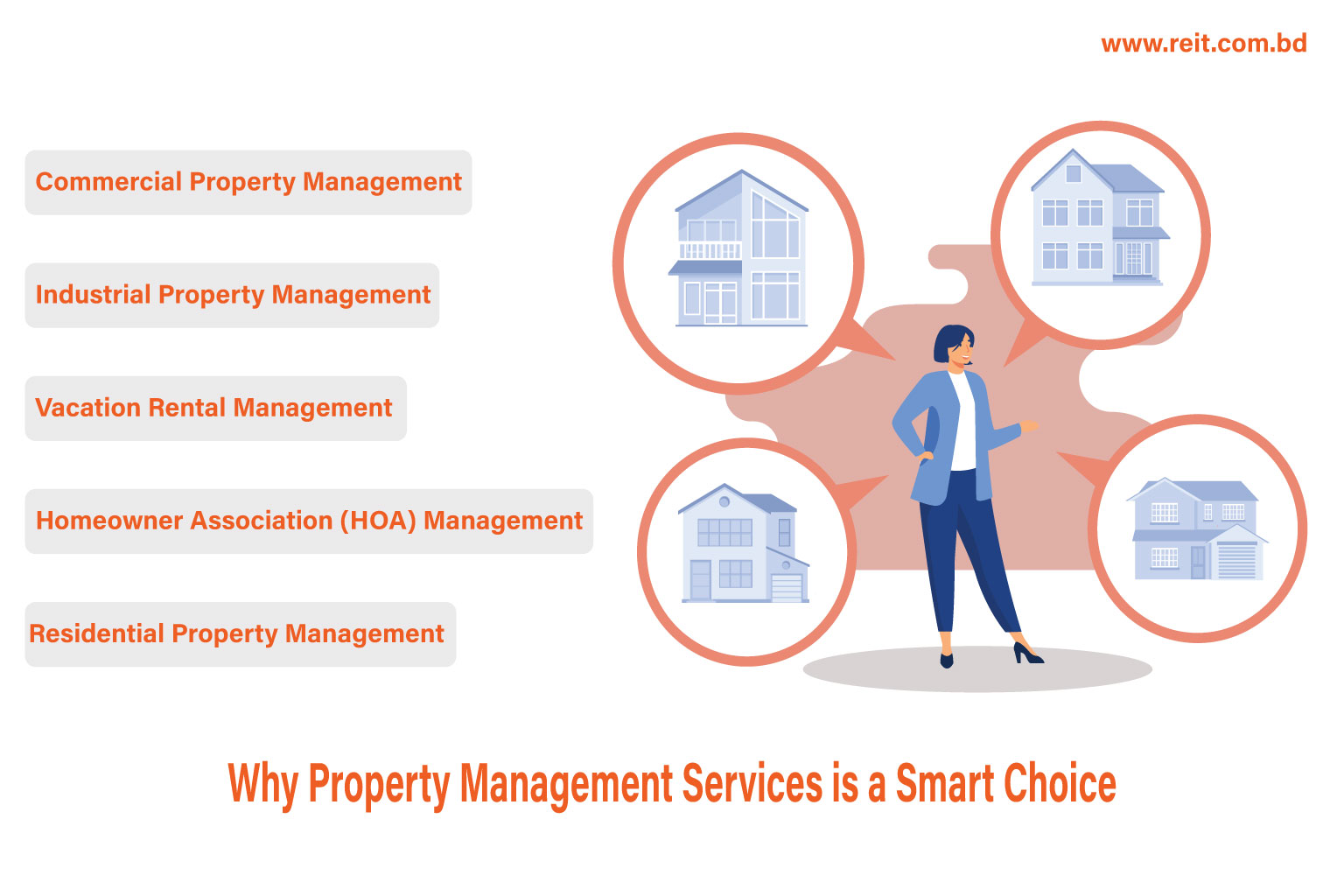Outsourcing property management services has become a popular choice for real estate investors and property owners looking to streamline their operations and focus on their core business activities.
By delegating property management tasks to external experts, individuals can benefit from professional expertise and enjoy a range of advantages. The process of outsourcing property management services typically involves the following steps.
Property owners assess their needs and determine which specific tasks they want to outsource. These tasks can include rent collection, maintenance and repairs, tenant screening, marketing and advertising, lease agreements, and overall property administration.
Outsourcing property management services can be a game-changer for property owners and real estate investors. By leveraging the expertise and resources of professional property managers, individuals can maximize efficiency, reduce stress, and ultimately enhance profitability.
A Guideline To Establish the Process of Outsourcing Property Management
Establishing a streamlined process for outsourcing property management is crucial to ensure a successful and efficient partnership. Here is a guideline to help you establish the process effectively.
Assess your property management needs and determine which specific tasks you want to outsource, such as rent collection, maintenance, tenant screening, and marketing. This will help you define the scope of services required from the property management company.
Conduct thorough research to identify reputable property management companies. Look for companies with a proven track record, positive reviews, and extensive experience in the industry. Seek recommendations from other property owners or real estate professionals.
Establish clear lines of communication with the property management company. Determine the preferred methods of communication and expectations regarding regular updates, reporting, and response times. This will ensure effective and timely communication throughout the partnership.
Outsourcing Property Management Cost
The cost of outsourcing property management can vary significantly depending on various factors, as mentioned earlier. However, to provide some approximate numbers for reference, let’s consider a hypothetical scenario:
- Flat Monthly Fee:
Some property management companies charge a flat monthly fee, which can range from around $100 to $500 per month.
This fee usually covers basic management services such as rent collection, tenant communication, and maintenance coordination. The exact cost will depend on factors like the property size, location, and local market rates.
- Percentage of Monthly Rent:
Another common pricing model is charging a percentage of the monthly rent as the management fee. The typical range is around 8% to 12% of the monthly rent.
For instance, if the monthly rent is $1,500, the management fee could be approximately $120 to $180 per month.
- Additional Fees:
Some property management companies may have additional fees for specific services or circumstances. For example, there might be charges for lease renewals, tenant screening, property inspections, or eviction proceedings.
These fees can range from $50 to a few hundred dollars, depending on the complexity and requirements of the service.
Additionally, it’s important to consider the value and benefits that outsourcing property management can provide, such as saving time and effort, accessing professional expertise, and optimizing property performance, as these factors should also be weighed when assessing the cost-effectiveness of outsourcing.
Benefits of Outsourcing Property Management
Outsourcing property management services can offer several significant benefits to property owners and real estate investors. Here are some key advantages:
- Expertise and Experience:
Property management companies specialize in managing properties. They possess extensive knowledge and experience in dealing with various aspects of property management, including rent collection, tenant screening, maintenance, and legal compliance.
- Time and Resource Savings:
Property management involves numerous time-consuming tasks, such as advertising vacancies, screening tenants, handling maintenance requests, and addressing tenant concerns.
- Maintenance and Repairs:
Property management companies have networks of trusted contractors and vendors for maintenance and repairs. They coordinate necessary repairs promptly, ensuring that the property remains well-maintained and minimizing potential issues.
- Legal Compliance:
Property management involves navigating complex legal regulations and requirements. Property management companies have in-depth knowledge of local and national laws pertaining to rental properties and eviction processes.
- Rental Value Optimization:
Property management companies have a deep understanding of local rental markets. They can provide valuable insights into setting competitive rental prices, ensuring optimal returns on investment.
Overall, outsourcing property management offers property owners convenience, expertise, and peace of mind. By entrusting the day-to-day operations to professionals, property owners can maximize their property’s potential, save time and resources, and enjoy a hassle-free ownership experience.
Tax Obligations and Considerations of Outsourcing Property Management
When outsourcing property management, property owners should be aware of certain tax obligations and considerations. Here are some key points to keep in mind:
- Rental Income Reporting:
Property owners must report rental income on their tax returns, regardless of whether they manage the property themselves or outsource it to a property management company.
The rental income should be reported as part of the owner’s annual income, and any applicable deductions can be claimed.
- Property Management Fees:
The fees paid to the property management company are generally tax-deductible expenses. These fees can be deducted as a business expense, reducing the taxable rental income.
Property owners should maintain records of the fees paid to the property management company for documentation purposes.
- Documenting Expenses:
Property owners should maintain proper documentation of all expenses related to the rental property.
This includes invoices, receipts, and records of repairs, maintenance, advertising costs, and other expenses incurred through the property management services. These documents are important for accurate reporting and potential tax deductions.
- Deductible Expenses:
Property owners may be eligible to claim deductions for various expenses related to the rental property.
These can include property insurance premiums, property taxes and depreciation of the property. It’s essential to consult with a tax professional or accountant to ensure accurate and compliant deductions.
- 1099 Reporting:
If the property management company is an independent contractor and the payments made to them exceed a certain threshold (currently $600 in a tax year), property owners may be required to issue a Form 1099-MISC to the property management company.
This form reports the payments made and helps ensure compliance with tax reporting requirements.
It’s crucial for property owners to consult with a qualified tax professional or accountant who is familiar with rental property taxation.
They can provide personalized guidance based on the owner’s specific circumstances and ensure compliance with all relevant tax obligations. Staying informed and proactive about tax obligations can help property owners avoid penalties and maximize their tax benefits.
Conclusion
Outsourcing property management services can be a strategic decision for property owners, offering a range of benefits and advantages.
A well-defined process and considering the various factors involved, property owners can establish a successful partnership with a reputable property management company.
Outsourcing property management can provide property owners with peace of mind, increased efficiency, and improved property performance.
By following the suggested guidelines and considering the benefits and tax implications, property owners can make informed decisions and establish successful partnerships with property management companies.
FAQs
Q: What services can be outsourced to a property management company?
A: Property management companies can handle a wide range of services, including rent collection, tenant screening, property marketing, lease administration, maintenance and repairs coordination, financial reporting, and legal compliance.
Q: How much does outsourcing property management cost?
A: The cost of outsourcing property management varies depending on factors such as property size, location, services required, and the property management company itself.
Fees can be structured as a flat monthly fee or a percentage of the monthly rent. It’s advisable to obtain quotes from multiple companies and compare their fee structures.
Q: How do I choose the right property management company?
A: When choosing a property management company, consider factors such as their reputation, experience, track record, services offered, pricing, communication processes, and the compatibility of their approach with your property management needs.
Q: What are the tax considerations when outsourcing property management?
A: Property owners should report rental income on their tax returns, regardless of whether they outsource property management or not.
Property management fees are generally tax-deductible, and owners should maintain proper documentation of expenses related to the rental property.

















